(EDIT: This story appears in my collection ANGLER IN DARKNESS)
Coming at you from E-Volve Books is WELCOME TO HELL: AN ANTHOLOGY OF WESTERN WEIRDNESS, edited by the maestro of all things Sasquatch, Eric S. Brown.
First take a look at this cover. I think it’s one of the best my work’s ever appeared under to date.
Reminds me a still from the opening credits of a Leone movie.
I’m told the title of the anthology is a direct reference to the words the stranger paints over the Lago town sign in HIGH PLAINS DRIFTER, a movie I’m a tremendous fan of.
 I’m in great company here – Stoker Award Winner Joe McKinney, fellow Dark Moon Books alum Max Booth III, Aaron J. French, Franklin E. Wales, Suzanne Robb and more.
I’m in great company here – Stoker Award Winner Joe McKinney, fellow Dark Moon Books alum Max Booth III, Aaron J. French, Franklin E. Wales, Suzanne Robb and more.
My own offering, BIGFOOT WALSH, takes place inFredericksburg,Texas around 1849. A troop of Texas Rangers rides into town seeking one German doctor Wilhelm Keidel, to accompany them. They have received reports of Comanche Indian depredations in the hill country, and want to bring a doctor along as they investigate the remote settlements in case of wounded survivors.
Discovering a burned out cabin with its goods and weaponry largely untouched but its horses brutally butchered and womenfolk stolen, the Rangers are also joined by legendary Texas Ranger Lieutenant ‘Bigfoot’ Walsh (no relation to real-life ‘Bigfoot’ Wallace, though they are acquainted), a tremendously large and hairy individual who is said to be of Lithuanian extraction. He rides no horse, goes barefoot upon a pair of huge feet, and sports a Brand Rifle loaded with a broomstick lance, a weapon usually reserved for killing whales.
He also dismisses the Rangers’ assertion that they are tracking Comanche Indians, pointing to a set of overlarge tracks in the mud. Their quarry is something altogether more dangerous, something Walsh himself has a certain connection to….
Fredericksburg is a real community, called Fritz Town by the old-timers, as it was established soon after the Mexican War by German immigrants, and named for Frederick of Prussia.
Fredericksburg was interesting and perhaps totally unique in their dealings with the local Penateka Comanche tribe, in that they settled for peace early on, and enjoyed a lasting armistice the surrounding Texans did not.
One cool tradition dating back to the signing of the treaty which purportedly continues inFredericksburgtoday is the lighting of bonfires on the surrounding hilltops during Easter Eve.
During the negotiations, the Comanche camped on hilltops all around Fredericksburg, and their fires could be seen at night. To alleviate the fears of their children, the German mothers told them the fires were the Easter Bunny boiling eggs to be painted for the morning’s hunt.
Dr. Wilhelm Keidel, who appears in my story, really was the first licensed doctor practicing in Gillespie County. A veteran of the Mexican War himself (in the First Texas Foot Rifles), he also became the county’s first Chief Justice, and founded the nearby town of Pedernales. He never refused treatment based on creed, race, or loyalty, even during the War Between The States, and was called ‘Butcher Knife’ by the Comanche whom he often treated (maybe something is lost in the translation).
Chief Santa Ana (who is mentioned in BIGFOOT WALSH) of the Penateka Comanche was a modestly renowned war chief, having participated in the Council House Fight and the Great Raid Of 1840, in which the Comanches burned out two anglo cities and conducted bloody raids all the way to the Gulf of Mexico. Nevertheless, he was one of the instrumental parties of the Penateka band in the signing of the Meusabach-Comanche treaty inFredericksburg.
In 1849 the Penateka Band dissolved, reportedly due to a severe outbreak of cholera (which Dr. Keidel and the Germans of Fredericksburg were also dealing with at that time). Chief Santa Ana was one of the victims, though his son Carne Muerto (Dead Meat) survived and joined the Kwahadi Band of Quanah Parker.
My story says different, of course…
The climactic scene of the story takes place on Enchanted Rock. AKA Spirit Song Rock, it’s a huge pink granite monadnock where the renowned Texas Ranger Captain John C. Hays supposedly singlehandedly held the high ground against a superior force of Comanches in 1841.
Legends about the area say that Comanche and Tonkawa bands held sacrifices on its summit in prehistoric days, and that it was a portal to other worlds. There is also a story of a Spanish priest who fell into a hole in the rock and was lost in underground tunnels for days, where he encountered hordes of mystical beings before finding his way out again.
Just a few of the real life ingredients that went into BIGFOOT WALSH.
Here’s an excerpt ————————————————————————————————————————————————————————————
It was a cool spring night when the Texas Rangers rode out of the dark into Fredricksburg.
I remember because the people were out lighting the bonfires on the hilltops, and one of the Rangers, a dirty youth with rusty hair, asked me what they were for.
“When we held a council with Chief Santanna last year,” I explained, “the Indians camped on the hills all around the town. The children were afraid, so their parents told them it was the Easter bunny boiling wildflowers to make the dyes for their basket eggs. This year the children expected it, so….”
“It’s Easter?” the young Ranger asked in wonder.
His captain rode up on a big American horse. He had grey salted hair and a lean face and legs, but his body was like an old washerwoman’s, with a baggy belly and thick hands. He wore a dark wide brimmed hat with a pheasant feather in the band, and what part of his skeleton was not weighed down by his bulky flesh sagged with revolvers. Beside him was another man, tall with a dark beard and checkered shirt, a flintlock rifle across his saddle.
“This one speak English?” the captain asked.
I said I did.
“I hear tell there’s a Dutch doctor hereabouts. Name of Keidel.”
“I am Wilhelm Keidel,” I said. “What are you men about, riding in so late?”
“Captain Shockley,” said the captain. “We come across a ranch of Mormon brothers a couple miles southeast, along the Pedernales outside of Zodiac. The men and horses were cut to pieces. We figure Penatenka Comanches done it.”
“I doubt that. We’ve been at peace with the Penatenka for over a year now,” I said.
“I know all about your treaty. But I know Comanch too. They figure what you Germans paid ‘em off to keep your town safe don’t go for the rest of the white folks in these hills.”
The bearded man snorted and spat his agreement.
“What do you want, Captain?” I asked.
“We’re checkin’ all the outlyin’ ranches and farms. Could be they’re on a murder raid. I figure anybody they come across’ll be in a bad way if they live.”
“We’re in the middle of a cholera epidemic,” I said, “and I’m the only doctor for miles.”
“You won’t be gone more’n a day or two.”
“If it’s a fight you’re worried about,” said the bearded man, “there’ll be twelve armed Rangers between you and them savages.”
“I’m not afraid,” I said. “I fought at Matamoro.”
“On whose side?” the bearded man asked dryly.
“That’s enough, Tackett,” said Captain Shockley. “Go see that the men don’t mingle. I don’t want any of them catchin’ anything.”
Tackett nodded and rode off toward the rest of the company.
“We’ve quarantined the sick in the church,” I said. “If you camp around the beer garden you should be fine.”
“We’ll be pullin’ out early. Are you comin’ with or not?”
I thought of the Ruizes then, Pedro and Mariela, Mexican potato farmers who lived a few miles west. I had just delivered their baby daughter a week ago. Also, I did not want these Rangers stirring up trouble with our red neighbors after we had worked so hard at negotiating a lasting peace. The cholera outbreak was a little less than an epidemic thanks to the efforts of myself and my two assistants anyway.
“Alright,” I said.
I left my assistants with instructions and at first light found the Rangers mounted and ready to go. I packed my sawed-off double barreled shotgun and the bag of shells, and put the bag in the pocket of my topcoat.
We headed west, and Captain Shockley told me more about the Mormon cabin they’d found.
“They smashed the door in. Broke the bar right in two. They mutilated the brothers, cut up their horses, butchered ‘em for the meat.” Shockley scratched his patchy chin. “Didn’t even take nothin.’”
“Their rifles?” I asked.
“Left ‘em behind.”
“Would hostile Comanches leave perfectly good rifles behind?”
Before Shockley could reply, the rusty haired private gave a yell and pointed to a cloud of smoke rising over the next hill.
The Ruiz farm.
But for the smoldering fire, the adobe and thatch cabin was much as Shockley had described the Mormons.’ It looked as if someone had kicked the place over.
As we rode up to it, a monstrously tall figure in a long blue blanket coat and a crooked stovepipe hat emerged from the smoke billowing out of the ruptured structure.
A dozen pistols and rifles trained on the stranger, and my own shotgun besides. Only Captain Shockley made no move.
The stranger was possibly one of the ugliest individuals I’d ever seen. I had encountered many of the old trapper types in my travels, and in my service with the First Texas Rifles. As unacquainted as many of those men had been with the razor and soap, I had never encountered so prodigiously hairy and filthy looking a man as this. The whiskers on the sides of his face crept up nearly to his nose and halfway up his cheekbones. They were so abundant on the backs of his overlarge hands as to appear almost lustrous, dirty blonde in hue.
I had seen a person with this rare condition before in a traveling Mexican circus in Austin, but combined with his immense size (he was perhaps over seven feet and could look Captain Shockley in the eye even seated as he was atop his horse) the overall effect was startling. The stranger looked like some sort of prehistoric throwback, more ape than man. The small, bright blue eyes that peered out of the face did so from the shadow of a thick, nearly simian suborbital ridge. The skin of his chin, which was clean shaven, was slightly mottled as if with some birthmark or disorder of the pigment.
His patched blanket coat was hand-stitched with yellow thread, and he wore a coil of stiff rope over his shoulder. A brace of big horse pistols was belted around his waist, and he carried a stubby big bore rifle with a skeletal iron stock, the make of which I had never seen before. His shirt and trousers appeared to be homespun, and his feet were covered in great hairy hide boots, so near to the color of his body hair that he almost appeared to be barefoot.
“Leather it, boys,” said Captain Shockley. “This man’s one of ours.’ ‘Lo, Bigfoot.”
“Captain Shockley,” said the hairy stranger, in a voice surprisingly as articulate as it was deep.
He smiled, showing big teeth like white marble tombstones, the canines slightly pronounced.
Tackett rode up alongside his captain and ogled the new man openly.
“Little bit out of your jurisdiction, ain’t you?” Shockley said. “Thought you were riding with Hays over in Bexar County.”
“He gave me leave to go after this one. They attacked Waverly’s stage stop, killed Ben Waverly.”
“Take anything?”
“Just the Santee woman he kept around to sweep up.”
“They killed a couple Mormons out by Zodiac,” said Captain Shockley. “We figure it was Comanches.”
“I don’t think so,” said Bigfoot. “No arrows anywhere about the place.”
“Any bodies?” said Tackett.
“One. A man. Burned up in the fire.”
I said a quiet prayer for Pedro.
“Pedro Ruiz. He had a wife and a baby daughter,” I said.
“No sign of ‘em,” said Bigfoot.
“They got a long hard ride to Old Mexico with captives,” said Shockley.
“They’re not headed to Old Mexico,” said Bigfoot.
“Where else they gonna sell ‘em?” Tackett said.
“I don’t believe they intend to sell ‘em.”
“What then?”
“Come over here and lemme show you something.”
In a while the large man had led us behind the cabin, and there we found a dead horse, the meat ripped from its rump, most of the guts scooped out, and the tongue pulled out of its head, which had been wrenched completely around on its strong neck.
“What do you make of that?” Bigfoot asked.
“They butchered the Mormon horse too,” said Shockley, sliding off his mount. He got down slowly on one knee and squinted at the carcass.
“And the stage stop team. Well, not so much butchered as ripped apart,” said Bigfoot.
“Comanches have been known to eat horses,” Tackett said.
“Yeah but they’ll use a knife,” said Shockley, “not twist their damn heads around. These look like the meat’s been pulled off the bones. What do you say, Doc?”
I examined the horses. They were in wretched condition. The remaining ligaments hanging from the bones did indeed look torn. But who had the strength to pull muscle from bone?
“There are marks of teeth on the bones,” I said, “and the intestines have been gnawed. But why would Indians eat the horses? Why not take food from the cabin?”
“Did they?” Shockley asked Bigfoot.
“It’s all in there. Preserves, salt pork, bacon, all burnin’ in the pantry,” said Bigfoot. “I don’t think the fire was on purpose either. Looks like a coal oil lamp got smashed next to the cradle, spilled up the wall. I think the father knocked it over in the fight.”
“How ‘bout guns?” Shockley asked.
“I found a squirrel rifle laying,” said Bigfoot.
“They left the rifles at the Mormon place too,” Shockley mused.
“Well if we ain’t talkin’ about Comanches, what are we talkin’ about?” Tackett asked.
Bigfoot rubbed his discolored chin, then looked away and shrugged.
“I ain’t sayin’ yet.”
“You ain’t sayin yet,” Tackett repeated mockingly.
“OK so they got two women and a baby now,” said Shockley. “How about sign?”
“Still no horse tracks,” said the company tracker, a half-Lipan in a fringed buckskin coat called Dano.
“There’s got to be something.”
Bigfoot looked reluctant, but he nodded and led us over to a patch of ground on the northeast side of the cabin.
Down in a mud near the iron pump there was a single smeared bare footprint, as of a man, but ridiculously exaggerated, in a halo of coarse long hairs. One of the Rangers got down and laid his hand in the heel. You could’ve fit two more in there.
“I’God!” he exclaimed. “That’s a big Indian.”
“It’s smudged,” said Tackett. “Just looks stretched ‘cause he slipped in the mud, runnin’ off.”
“Nah, look at them toes,” said another. “That’s a solid imprint.”
“Comanches don’t go barefoot either,” Shockley said.
“Nope, and their feet don’t hardly touch the ground,” Bigfoot said. “Comanch without a horse is like a bird without wings.”
“OK, so they ain’t Comanch,” Shockley agreed. “We can catch ‘em anyway, if they’re on foot. Bigfoot, can you follow ‘em?” Shockley said.
“I think so.”
“Let’s ride then.”
As the rest of us saddled up, Bigfoot waited patiently by, staring off into the brush.
“The Captain said saddle up, Big Shaggy,” Tackett called down to him when it looked like he was going to be the last one to move.
“I don’t ride,” said Bigfoot. “And you best not carry that saucy line of yours too far, sergeant.”
Tackett looked fumed, but he had been spoiling for a fight with the new man since he’d seen him. He leaned over his saddle horn and gave his hardest look.
“You care to repeat that?”
One of Bigfoot’s thick arms whipped out and the huge hand on the end of it unfurled and gripped the back of Tackett’s neck, the thumb and fingers clamping on either side of his head. With one swoop he snatched the man out of his saddle and held him in the air by the nape, irons and all, the toes of his boots a foot or two off the ground.
“No, I wouldn’t,” he said lowly.
Now go pick up the anthology and sip the brew I came up with.
I’m told the print edition is forthcoming.
Hasta pronto,
Ed














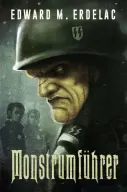
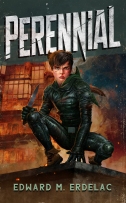
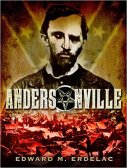
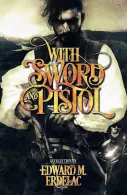
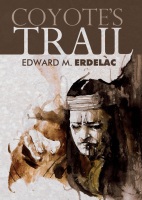


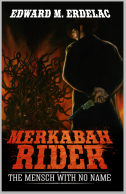



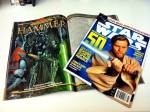
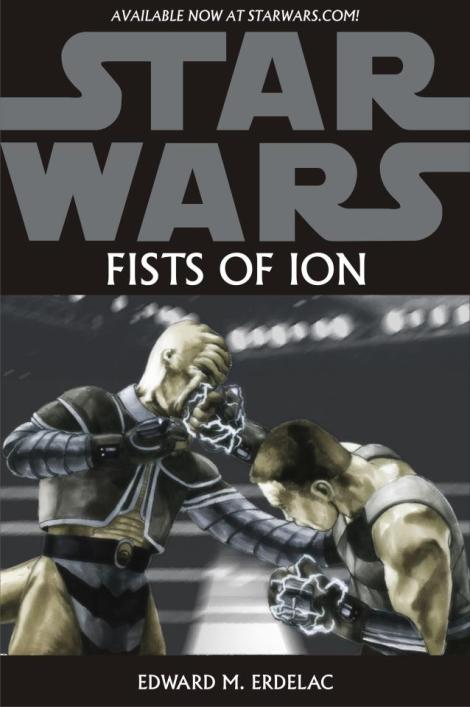



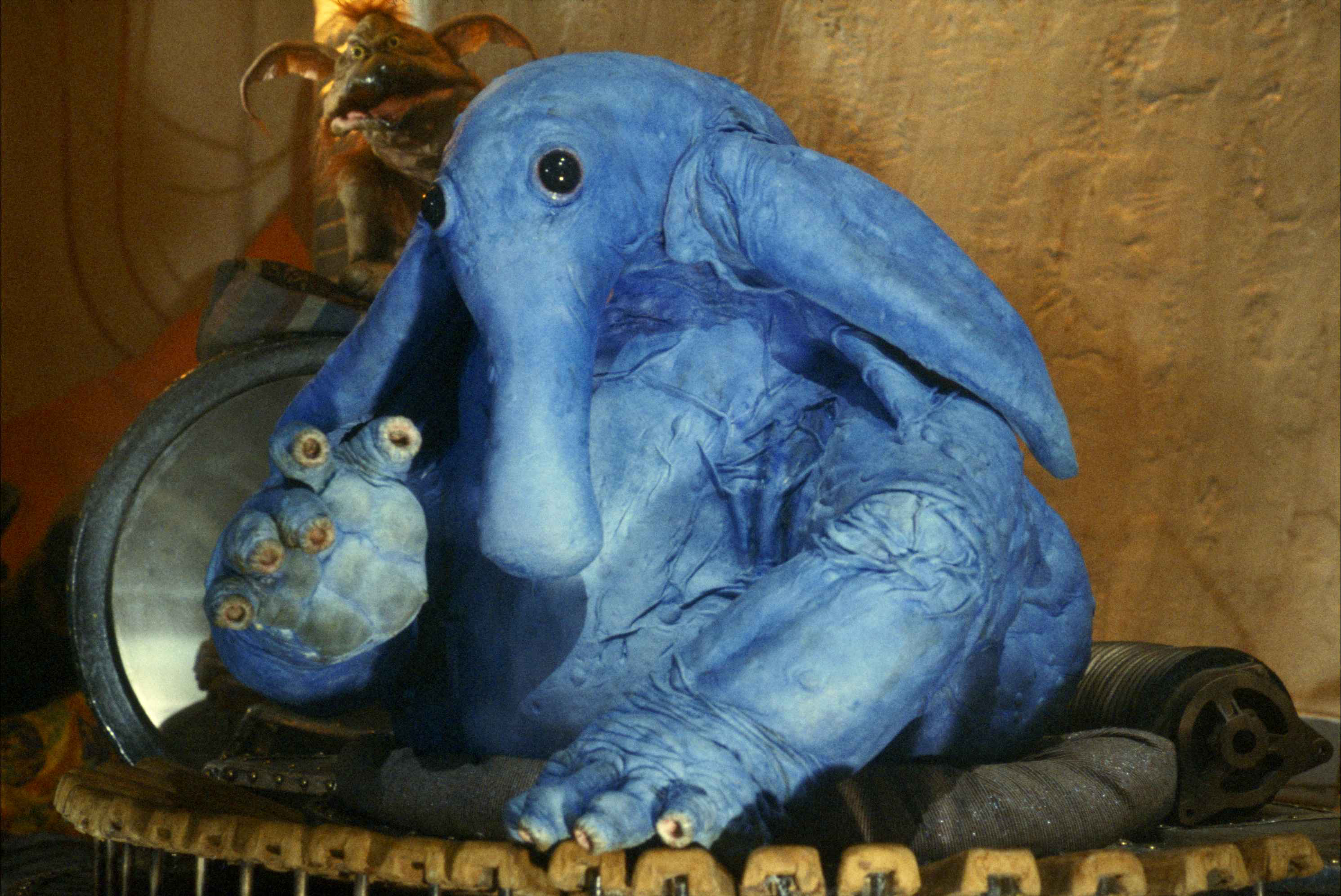

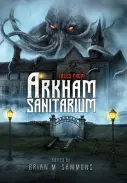


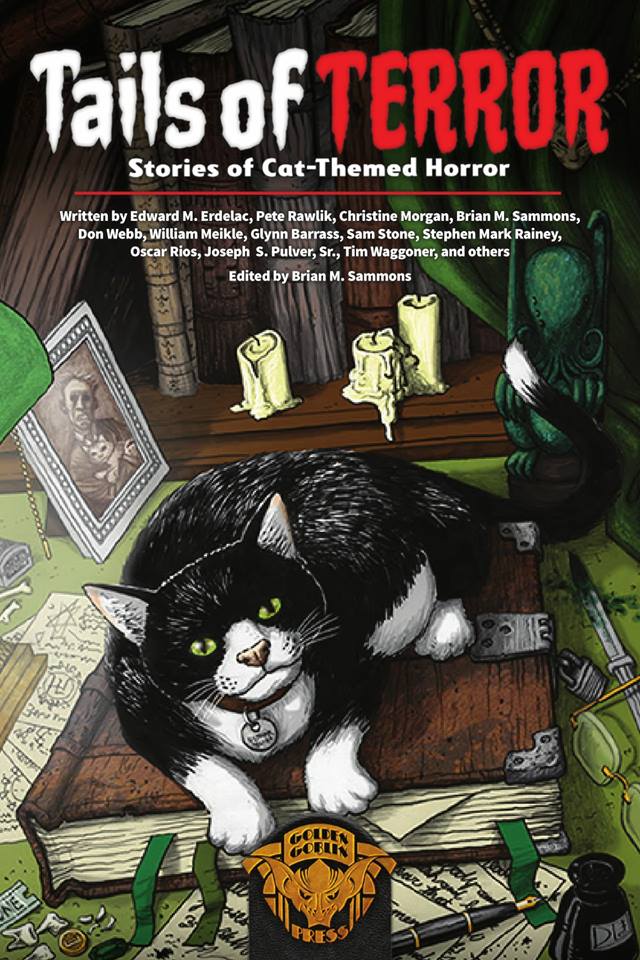




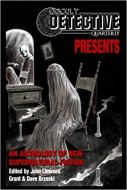
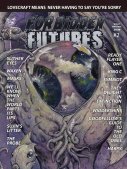






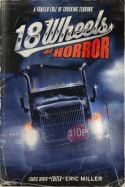
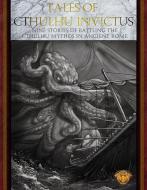
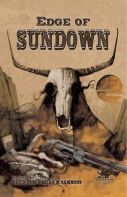




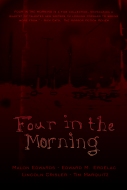



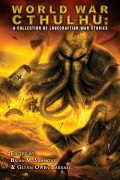



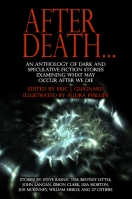

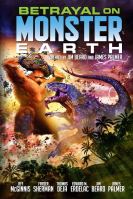

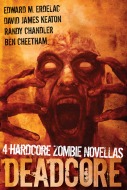




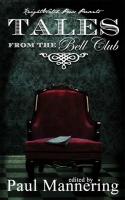
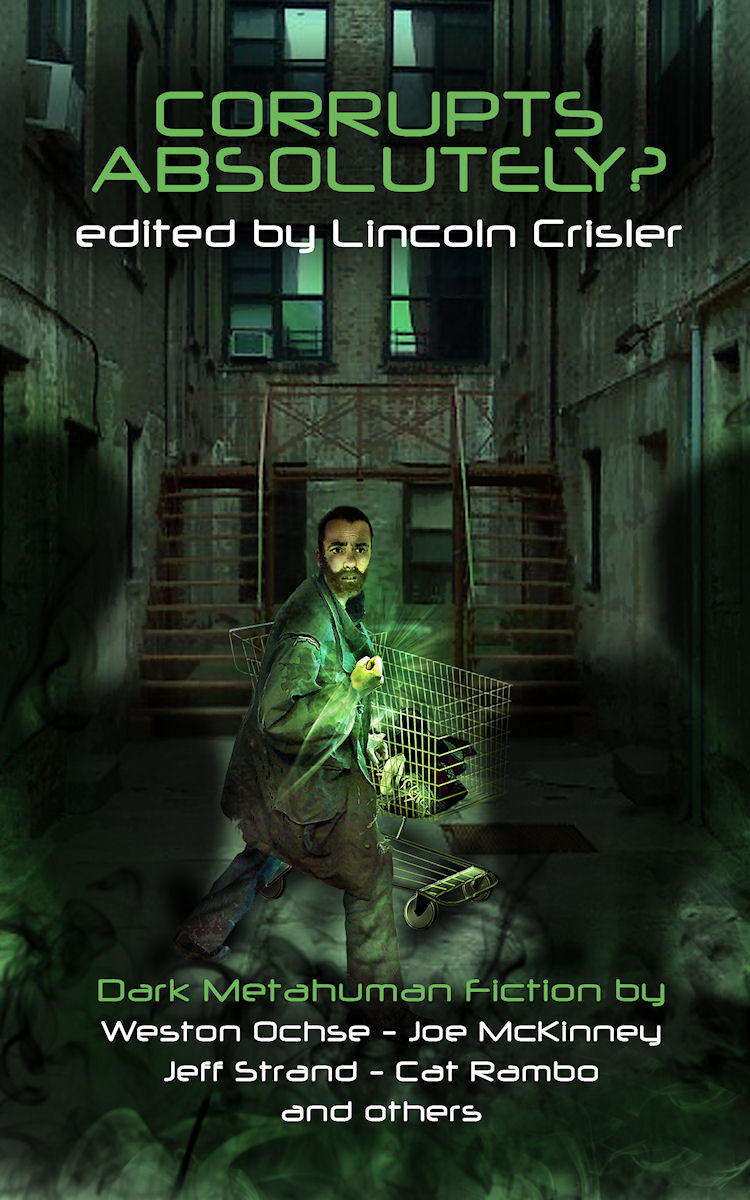
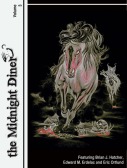
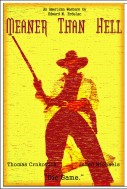




Leave a comment